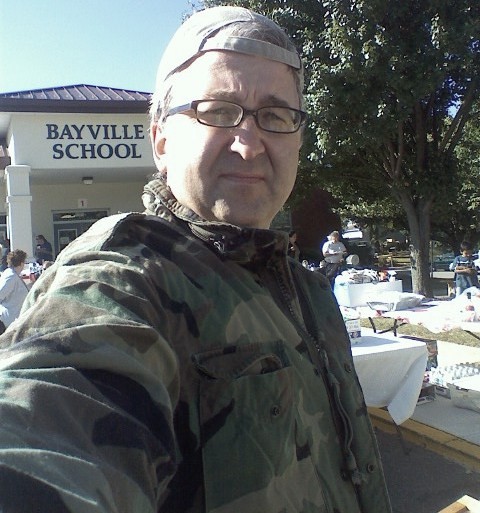This blog continues last week’s blog: “Philip Yancey: The Wanderer (part 1).”
“I’M HAVING AN argument with God,” I admitted to an old friend meeting me at a coffee shop in Brentwood. I had left my teaching position at Archer about two years earlier, and as I wrote my weekly blog for HuffPost each week (often about my family), I had finally begun to realize how angry I was.
I had also begun to realize that I wasn’t winning the argument. Somehow, I needed to reconnect with my deepest roots.
Shortly after that conversation, I decided to abandon Los Angeles and take a road trip around the United States. I would write a memoir about my childhood while traveling. I would even return home to visit my family.
That road trip turned into a year of living with my parents.

When I arrived in November 2009, I took stock of my finances. With my bank account hemorrhaging — my online teaching wasn’t paying enough to survive — I decided to return to the trade I had learned as a teen, laying block. I found myself reporting to my younger brothers, whose businesses were barely surviving the Great Recession.
THAT FIRST SUNDAY back, I wandered into Maple Grove Mennonite Church, now a more liberal community than when my parents had been married there over 50 years before — back when its culture was more severe.
At Maple Grove, I found a small group of friends who were both Christian and Progressive.
It was a year of restoring memories, sorting out childhood friendships. I also visited another liberal Mennonite church across town, where many of my other childhood friends had landed. They too had stretched to accommodate modern culture. They too had struggled to retain their faith.
The women’s white caps had gotten smaller and their fashion more colorful. The men had discovered the power of suits and ties. The world in which their children lived was deeply connected to media and fashion.
I liked the changes.
But I thought there was also a disturbing enthusiasm for Republican ideals. Rush Limbaugh. Sean Hannity. Glenn Beck. These were familiar voices to them. As someone who advocated for President Obama, I found myself on the outside.
Not that his race had anything to do with it, I was assured.
They saw our President as an authoritarian, someone who was extending the reach of the federal government, someone who was taking away our freedom of religion.
Obama’s “Apology Tour” to the Muslim world also horrified my friends and confirmed that he intended to turn over our nation‘s power to the Axis of Evil: Iran, Iraq, and North Korea.
LIVING AMIDST AN ostensibly Mennonite community, I felt as if I was in the Twilight Zone.
Yes, I appreciated their genuine faith — it came through clearly in the compassion and support they showed for each other. I was especially moved by the number of adopted, multiracial children I saw running around the church sanctuaries I visited.
But what I heard when politics was sliced over dinner were the talking points espoused by Fox News.
My siblings and father assured me that President Obama was “a Muslim.” He was faking Christianity.
On Facebook, I saw my friends repost images of Obama wearing a photoshopped, Hitleresque mustache. The Affordable Care Act brought in its fair share of vitriol, as well. It was just one more item of proof to my friends that we were headed towards a One-World Government.
Somehow, the core of our Anabaptist faith — which rejected nationalism, embraced nonresistance, and focused on living by the rules of Christ’s Kingdom, one that is “not of this world” — that core was disintegrating.
Instead, I thought my friends had embraced an Americanized version of Christianity, one framed by a heartless, Republican perspective.
It was all very confusing.
Thank God I had found the True Path of Faith — one that was Progressive. Those who couldn’t embrace these values were clearly wrong.
The answers were elementary. As my father once said when defending his literal interpretation of Christianity, “What’s there to interpret? Just read the Bible.” Now I applied the same lens.
Christ’s ministry of compassion clearly supported government intervention. The Bible clearly supported my values. Clearly, it was all there in black-and-white.
Wasn’t it?
In the midst of all this, I picked up Philip Yancey’s book, What’s So Amazing About Grace?

IN YANCEY’S DESCRIPTION of the book on his website, he observes that he wrote it “in order to speak to the growing enchantment of American Christians with right-wing politics.”
I had already read his book Soul Survivor. So I was instantly intrigued.
As I read Yancey, his gracious affect toward those who hurled fire and brimstone touched my soul.
Yancey’s description of the evangelical world could have been a description of what I found in my hometown during that year in 2009-10, as the Tea Party began their rise, nationwide.
Christians were becoming known mainly for what they were against: pornography, homosexuality, abortion, etc. That disturbed me, as I see grace as one of the great, often untapped, powers of the universe that God has asked us to set loose. As I wrote, the book became less about politics and society and more about the wonders of God’s grace and how it can transform individuals, family, and even nations.
What astonished me most is that Yancey had written that description 13 years earlier — in 1997.
Rather than condemning those who disagreed with him — racists, fundamentalists, bigots — Yancey extended Grace. He assumed the best.
Instead of highlighting the stupidity of his political opponents, Yancey turned to those who had taught him the meaning of Grace. He pointed to the failure of Christians to extend grace to those who disagreed with them.
Once again, Yancey described his struggle to get past his childhood experience with what he called “ungrace.”
In his book Guilt and Grace, the Swiss doctor Paul Tournier, a man of deep personal faith, admits, “I cannot study this very serious problem of guilt with you without raising the very obvious and tragic fact that religion — my own as well as that of all believers — can crush instead of liberate.”
Tournier tells of patients who come to him: a man harboring guilt over an old sin, a woman who cannot put out of her mind an abortion that took place ten years before. What the patients seek, says Tournier, is grace. Yet in some churches they encounter shame, the threat of punishment, a sense of judgment. In short, when they look in the church for grace, they often find ungrace.
IT WOULD TAKE a long time for me to see what a fool I had become. At that point I assumed those who disagreed with me politically had to be stupid, racist, or uneducated.
Yancey’s view of grace and faith helped me make sense of the clash I saw between the ideals of faith and the outside world around me. In his writing, I saw a different role model — a person who tried to listen other people and understand them, rather than announcing what they needed to believe.
It would take time before I would seriously consider doing this myself.
Ultimately, Yancey’s understanding of the role of Christians within the Public Square helped my Soul Teachers team decide on our approach to politics.
I’ll talk about this in my third column on Philip Yancey next week: “Breaking down walls (Part 3).”

In the fall of 1997, I attended a lecture by Yale professor, Stephen L. Carter. After his presentation, I met him and bought a copy of his (1993) book, The Culture of Disbelief: How American Law and Politics Trivialize Religious Devotion. Prof. Carter introduced me to the term “Public Square,” a concept Steven cites at the end of Part II. Carter helped me think through the same issues that Steven addresses when responding to Yancey’s depiction of Grace: How should we respond to others present in the Public Square with us?